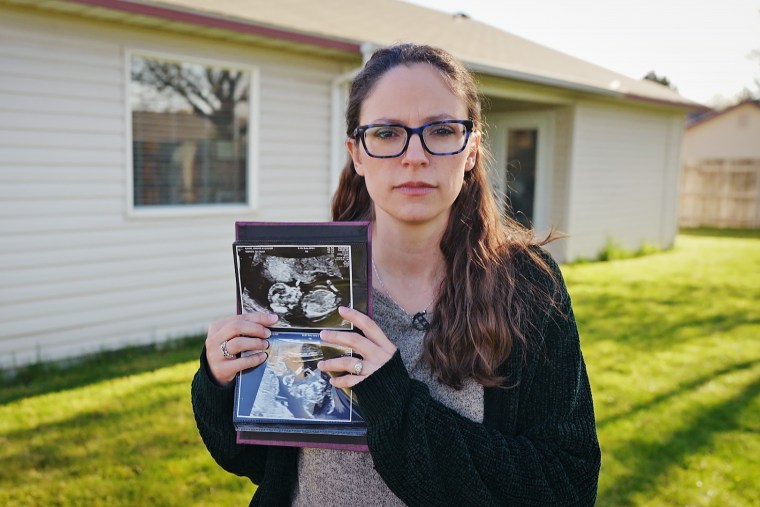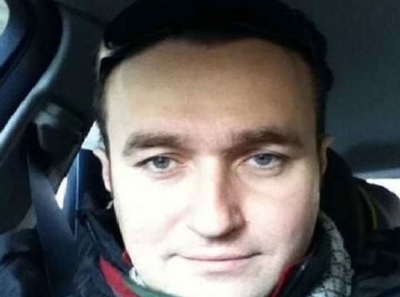Mother describes leaving Idaho for an abortion as Supreme Court considers its ban
BOISE, Idaho — It was the news that every expectant mother dreads. Twelve weeks pregnant with her second child, Jennifer Adkins learned her developing fetus had Turner syndrome, a rare chromosomal abnormality, and was unlikely to survive. On top of that, doctors warned that her own health could be in jeopardy.
Adkins was at high risk of what’s known as Mirror Syndrome — a condition in which the pregnant mother develops symptoms that mimic those of her deteriorating fetus, including swelling, high blood pressure and potentially pre-eclampsia.
But when she raised the prospect of terminating the pregnancy with her doctors, Adkins learned it was not an option: The fetus still had a heartbeat.
“They said we’re surprised that you’re still pregnant, given the severity of what we’re seeing on ultrasound. Most people would have miscarried by now,” she said. “I was just in total, total shock.”
Idaho is one of more than a dozen states that have banned nearly all abortions. Anyone who performs an abortion here is subject to up to five years in prison, and medical professionals who violate the law can also lose their licenses.
The law provides an exemption if a doctor finds the procedure is necessary to prevent the death of the woman. But doctors in Idaho say there’s significant confusion about what to do when a patient is carrying a fetus that is not viable and could cause devastating complications, but she is not on the brink of death.
“It makes no sense that we’re just going to wait until you’re on death’s door and then we’ll act,” said Dr. Duncan Harmon, one of only five full-time doctors specializing in maternal fetal medicine who remain in Idaho.
The bind in which some Idaho doctors find themselves is at the heart of a lawsuit the U.S. Supreme Court must now consider. The justices heard oral arguments Wednesday and will decide whether the state’s abortion ban conflicts with a federal law that requires hospitals receiving federal funding to provide patients whatever treatment is necessary, including abortions, to stabilize them in emergencies.
In their questions, several of the liberal justices raised examples of medical complications — such as the premature rupture of membranes — that could pose serious bodily injury if not immediately addressed but would not necessarily be fatal.
 Jennifer Adkins.NBC News
Jennifer Adkins.NBC News
It’s not the only legal challenge to Idaho’s law: Adkins has brought a lawsuit against Idaho in state court, along with three other women and two doctors, asking the court to clarify the scope of the state’s abortion ban. A trial is tentatively set for later this year.
In Adkins’ case, waiting to miscarry naturally could have taken weeks. So she and her husband, John, packed their bags, cobbled together funds and drove six hours to Oregon for an abortion.
“We were both disgusted by the treatment of our state,” she said. “Not only did we have to go through the trauma and grief of losing a very wanted baby, but then we had to have this emotional trauma of traveling to get the procedure.”









